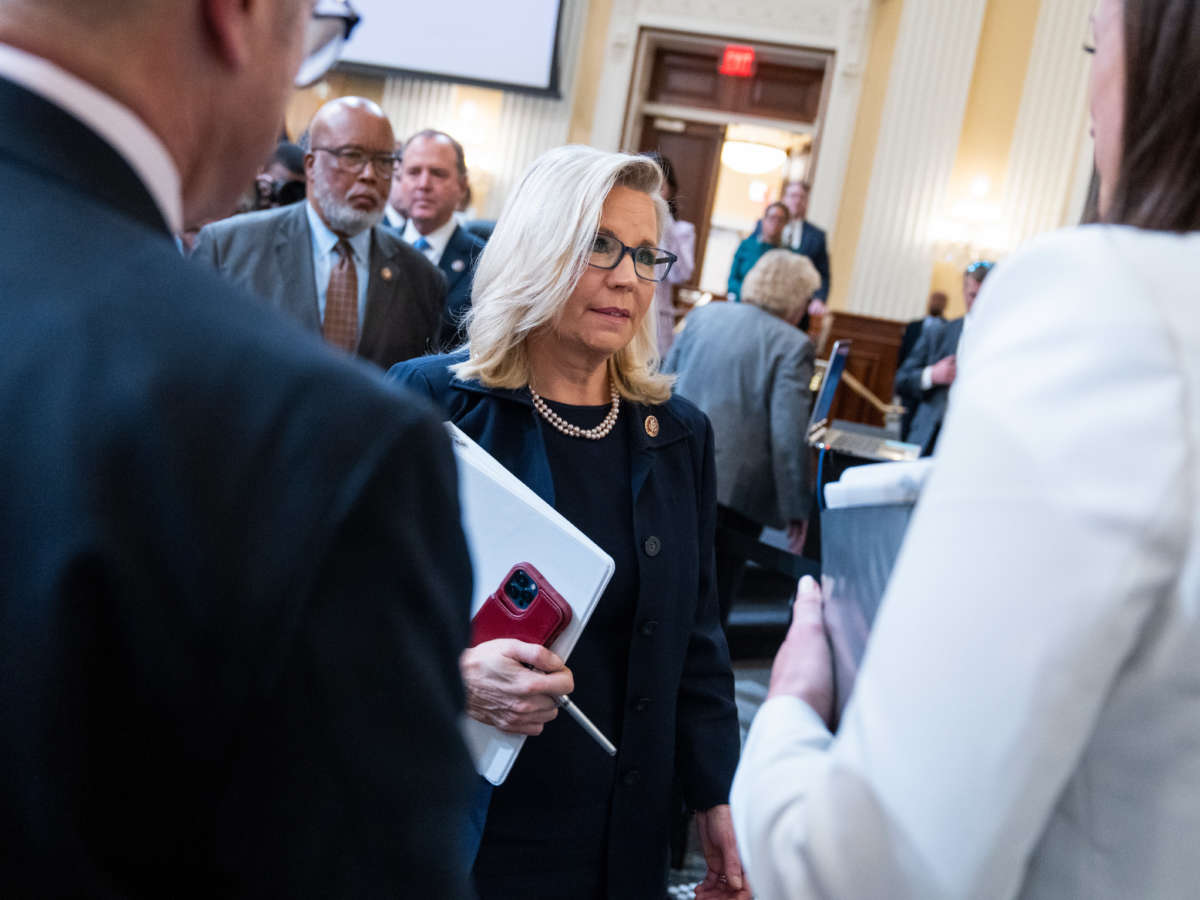Toward the end of the January 6 select committee’s surprise hearing on Tuesday, vice chair Rep. Liz Cheney (R-Wyoming) announced that some of the witnesses who testified to the panel have said that loyalists to former President Donald Trump engaged in intimidation tactics prior to their depositions.
“Most Americans know that attempting to influence witnesses to testify untruthfully presents very serious concerns,” Cheney said upon revealing the intimidation campaign.
The committee “commonly asks witnesses connected to Mr. Trump’s administration or campaign whether they’ve been contacted by any of their former colleagues or anyone else who attempted to influence or impact their testimony,” Cheney explained.
Some witness testimonies have been compromised as a result, she went on.
“While our committee has seen many witnesses, including many Republicans, testify fully and forthrightly, this has not been true of every witness,” Cheney said.
The Wyoming Republican shared slides of testimony from an anonymous witness to show how Trump allies had employed mob-like tactics in order to compel witnesses to say good things about the former president.
“What they said to me is, as long as I continue to be a team player, they know that I’m on the team, I’m doing the right thing, I’m protecting who I need to protect, you know, I’ll continue to stay in good graces in Trump world,” the unnamed witness said, according to the committee.
“They reminded me a couple of times that Trump does read transcripts and to just keep that in mind as I proceeded through my depositions and interviews with the committee,” the witness added.
The committee demonstrated that the accounts given by the witness were corroborated by others they have spoken with.
“He knows you’re loyal, and you’re going to do the right thing when you go in for your deposition,” another witness recalled being told.
This isn’t the first time Trump or his loyalists have faced allegations of witness tampering. The special investigation in the Mueller report uncovered numerous attempts by the former president’s inner circle to cajole those speaking to investigators into giving favorable commentaries regarding Trump. There are also allegations that Trump’s personal social media posts could be considered intimidation tactics — his comments on testimonies or planned depositions during his first impeachment inquiry yielded several examples of potential witness tampering, some experts say.
Those found guilty of trying to sabotage an inquiry by coercing or threatening witnesses to give less than truthful testimonies face up to 20 years in prison.


